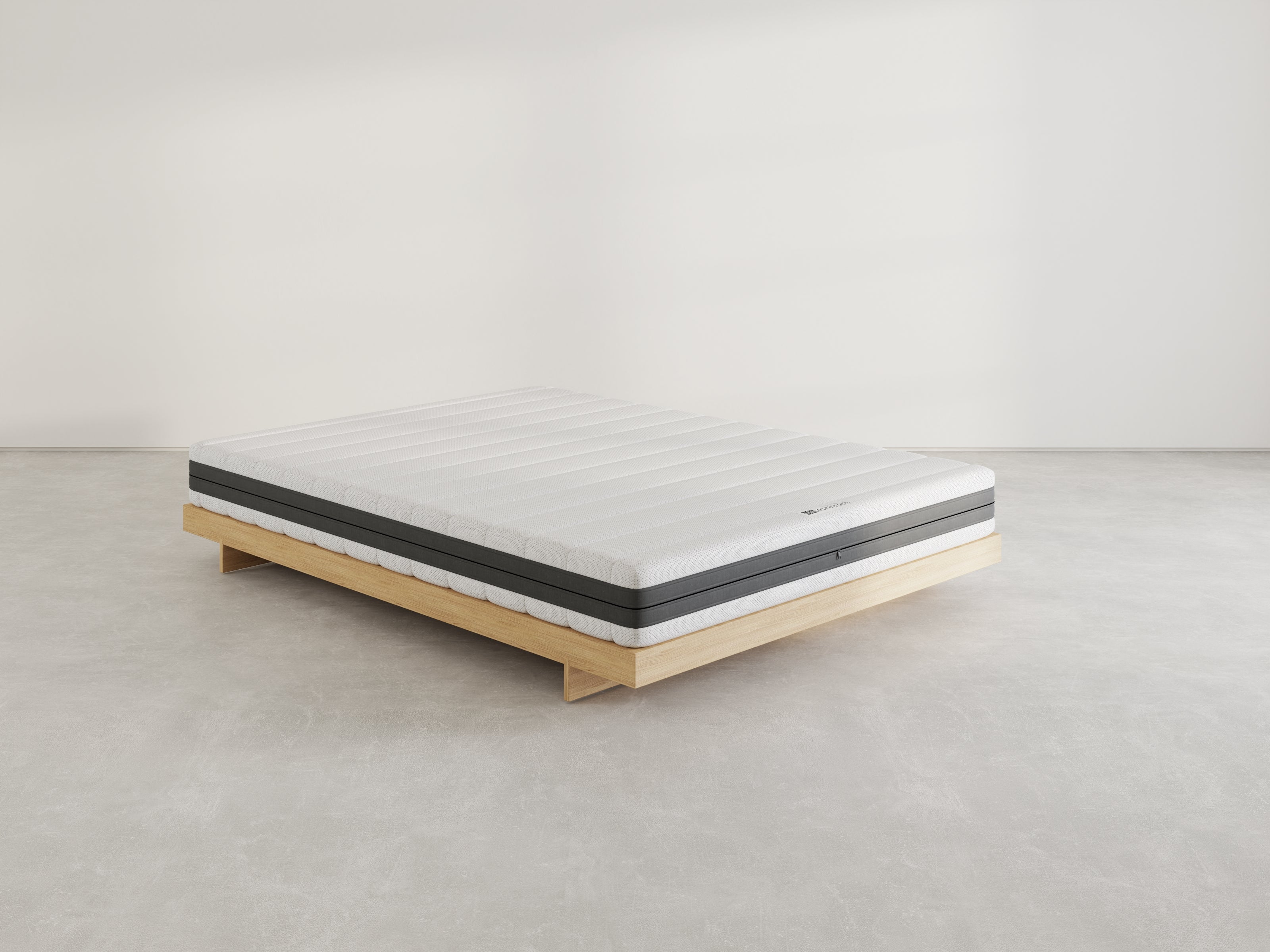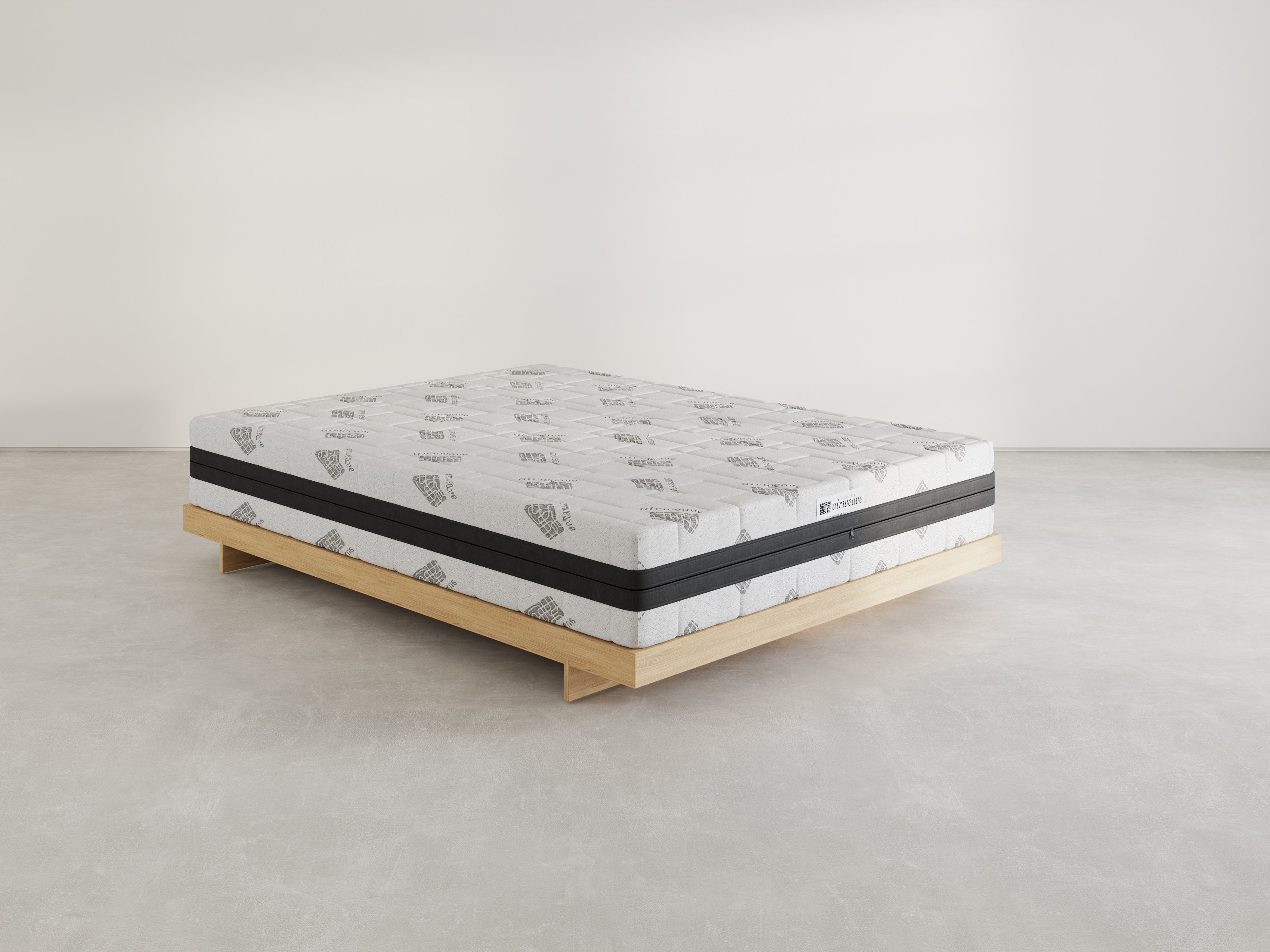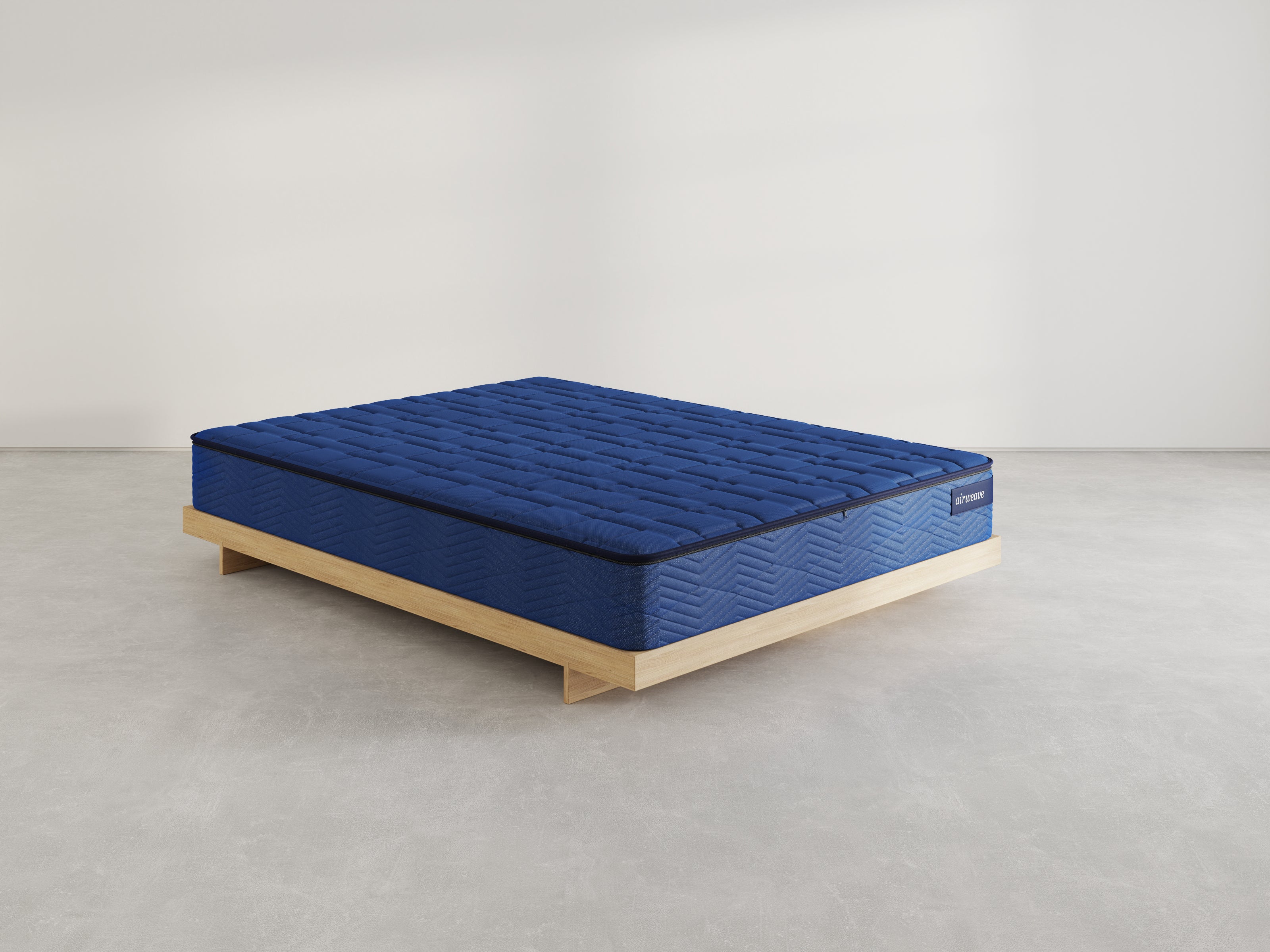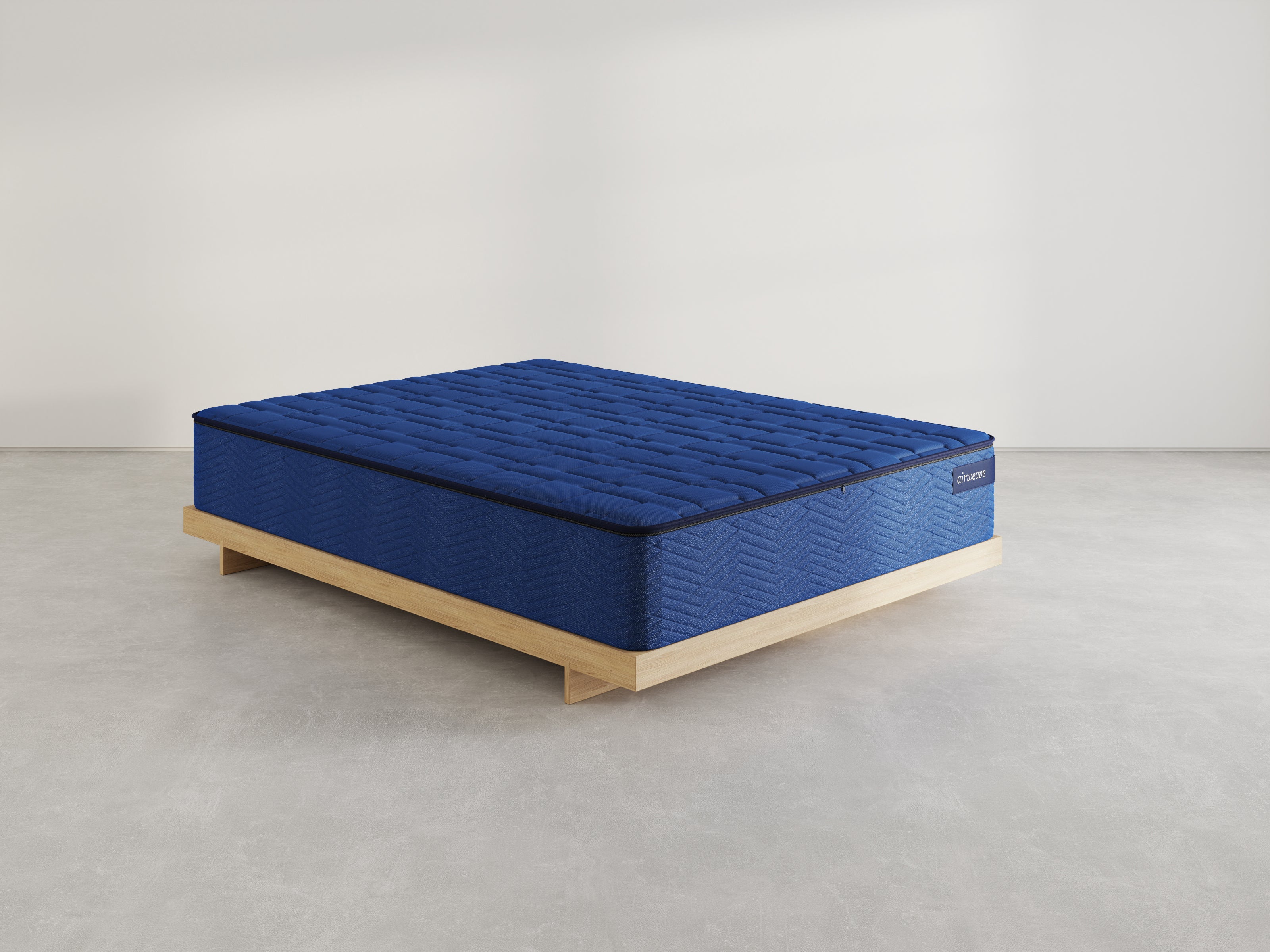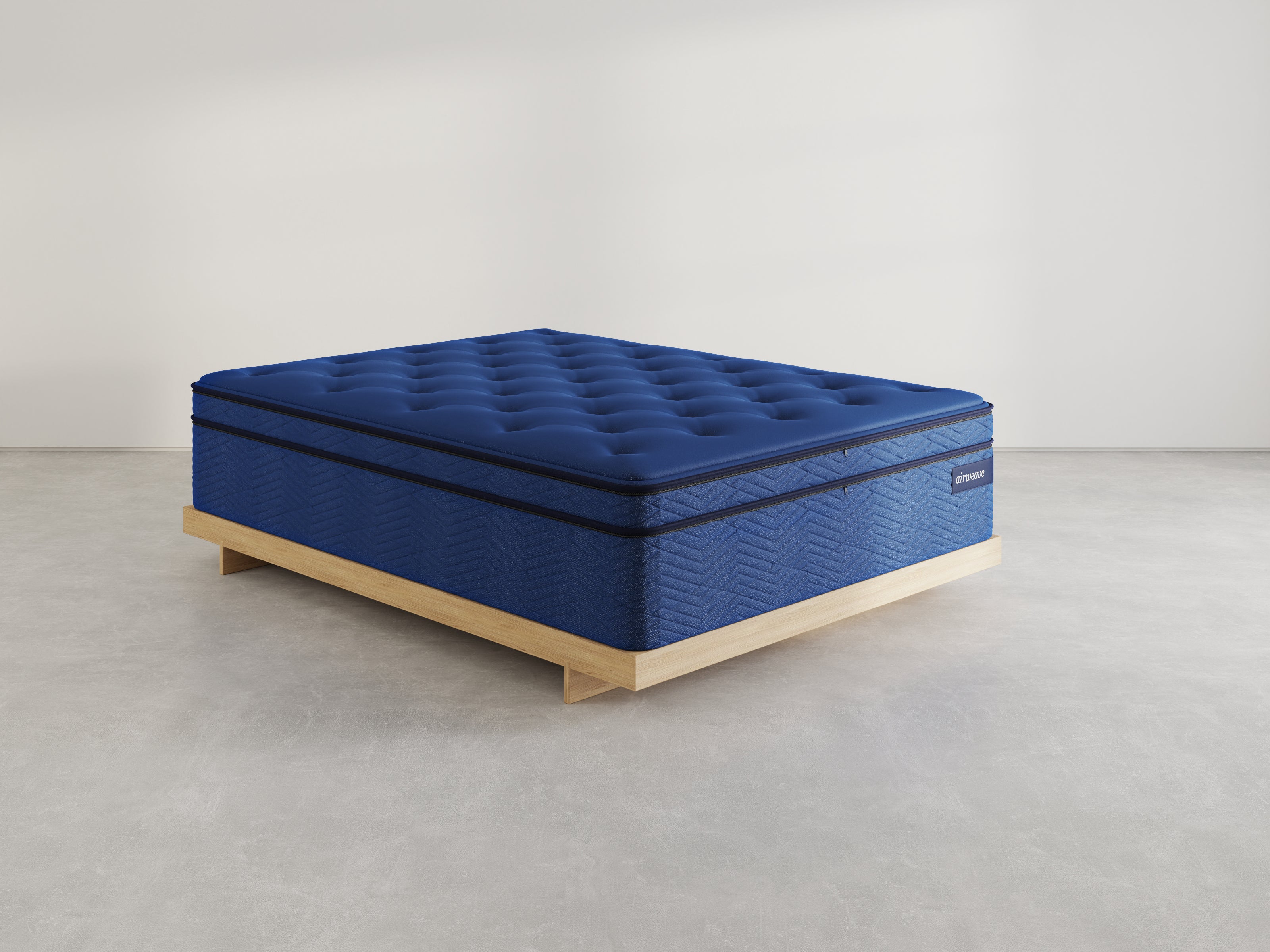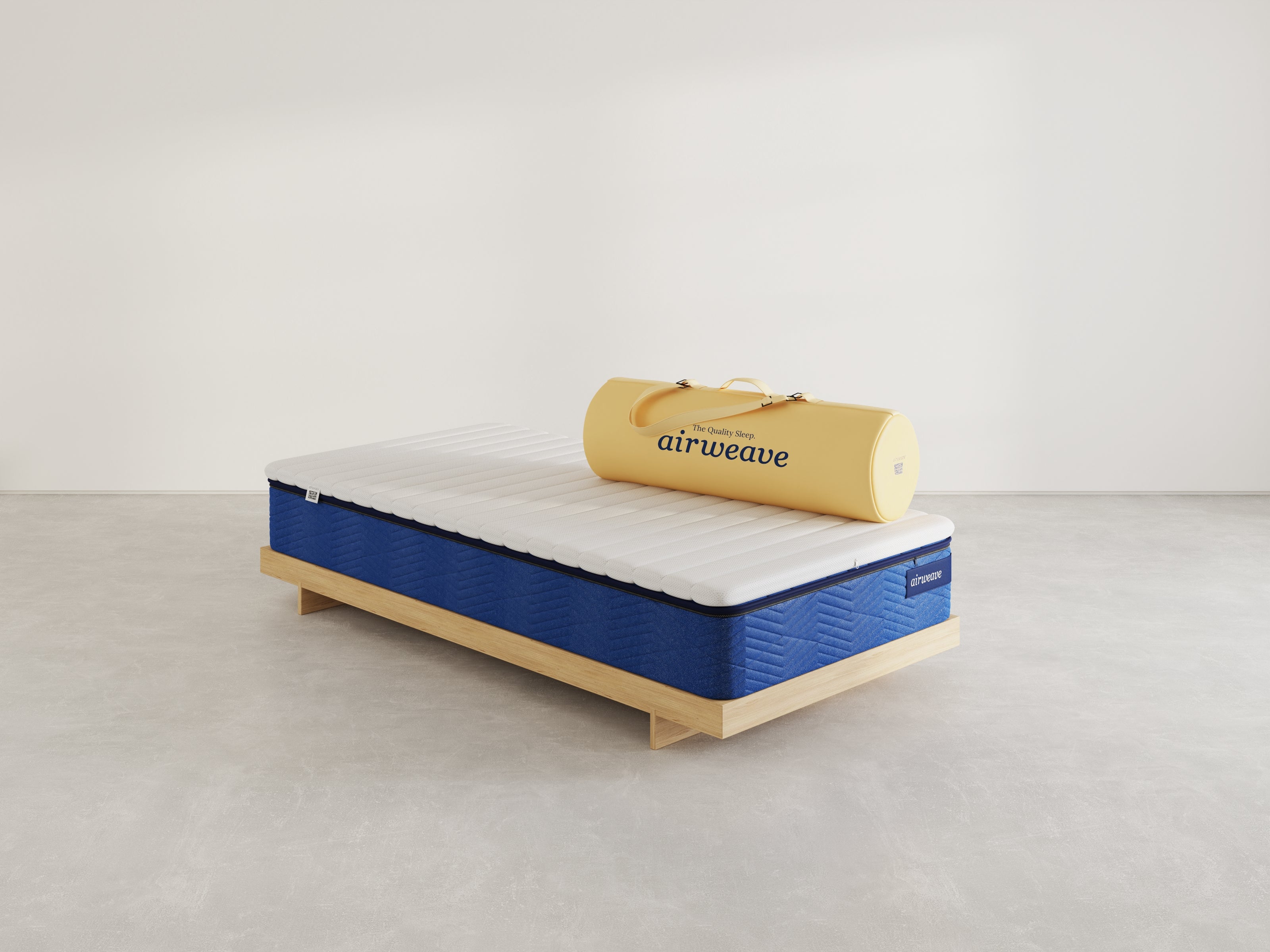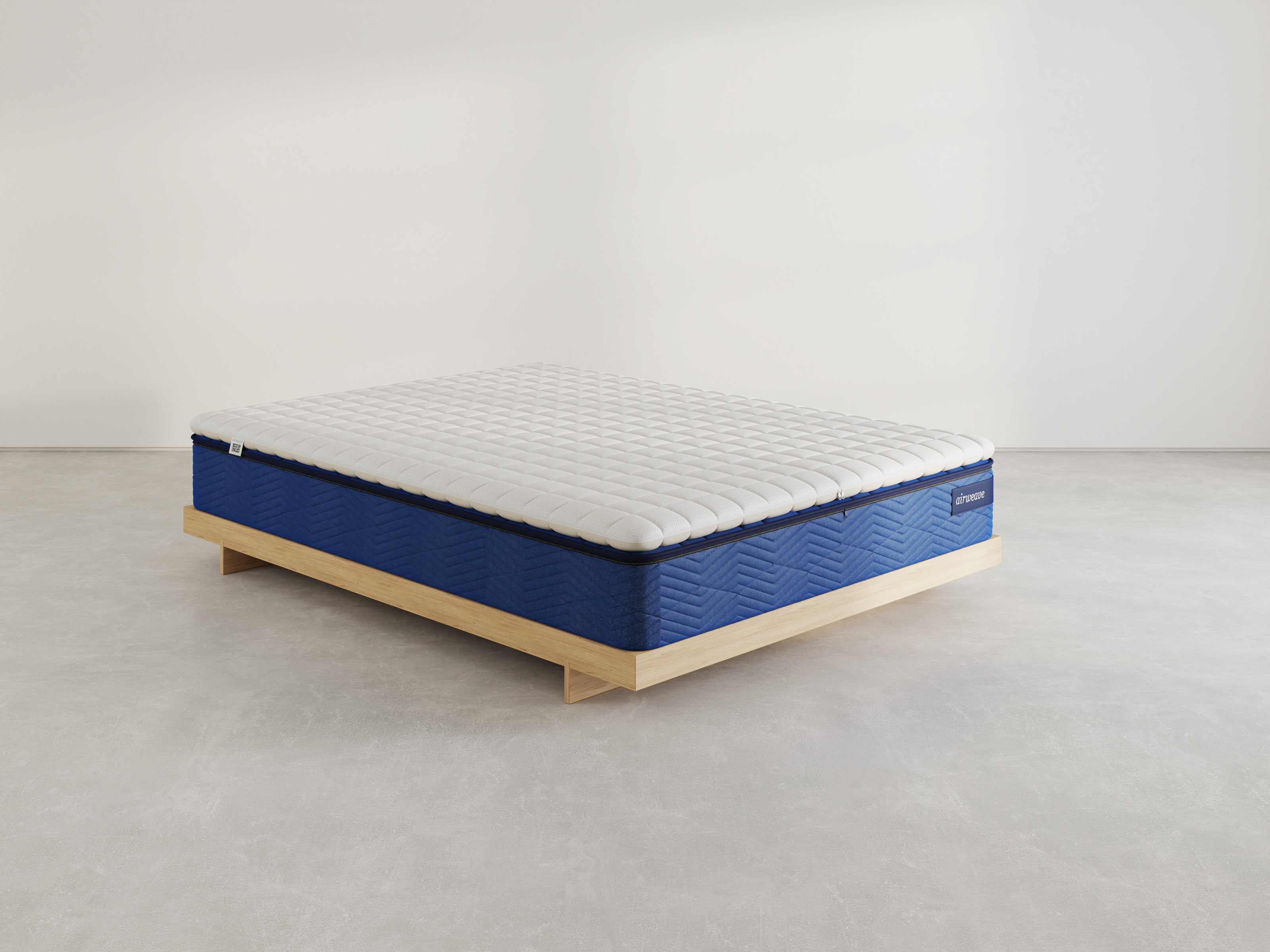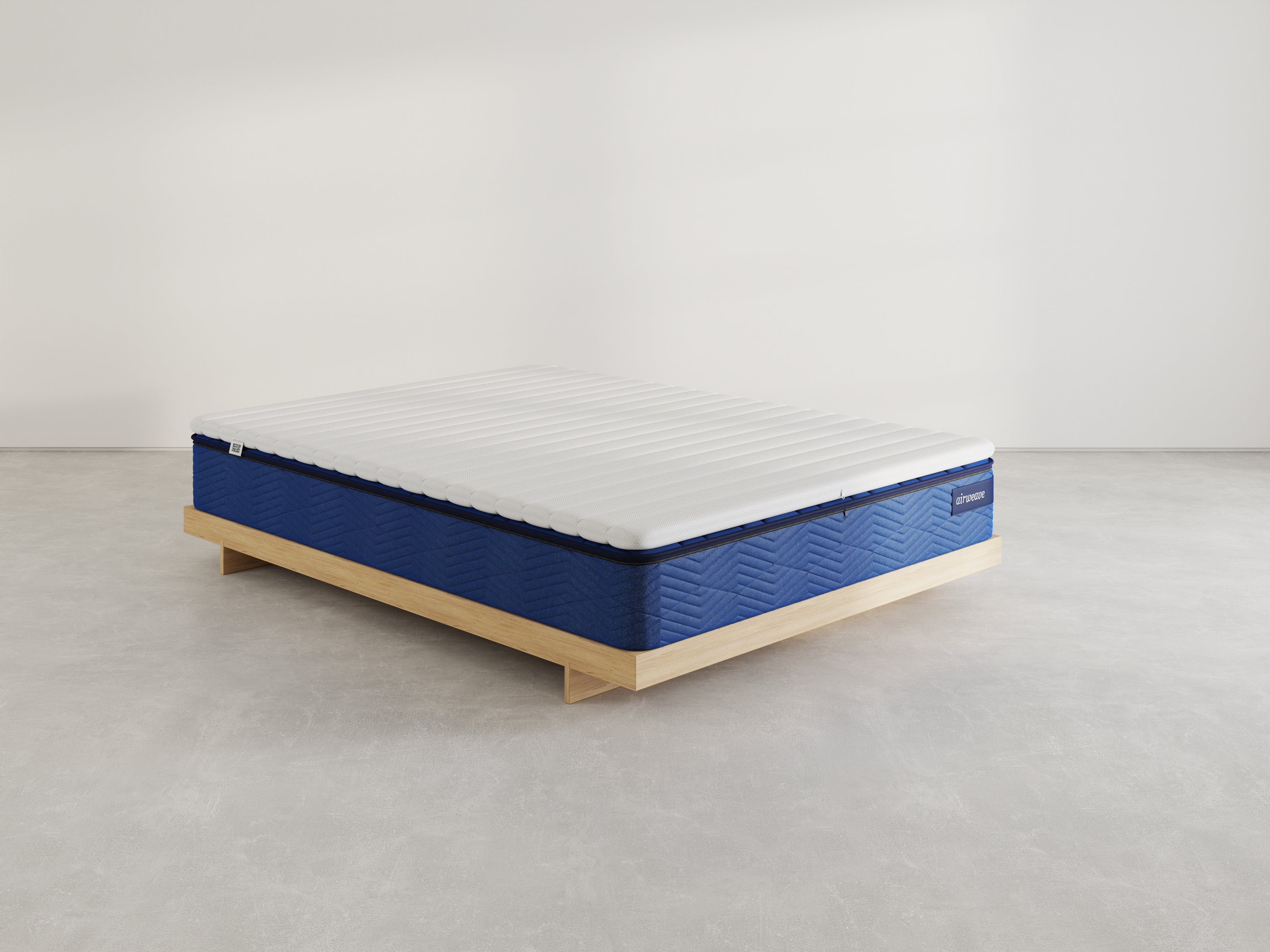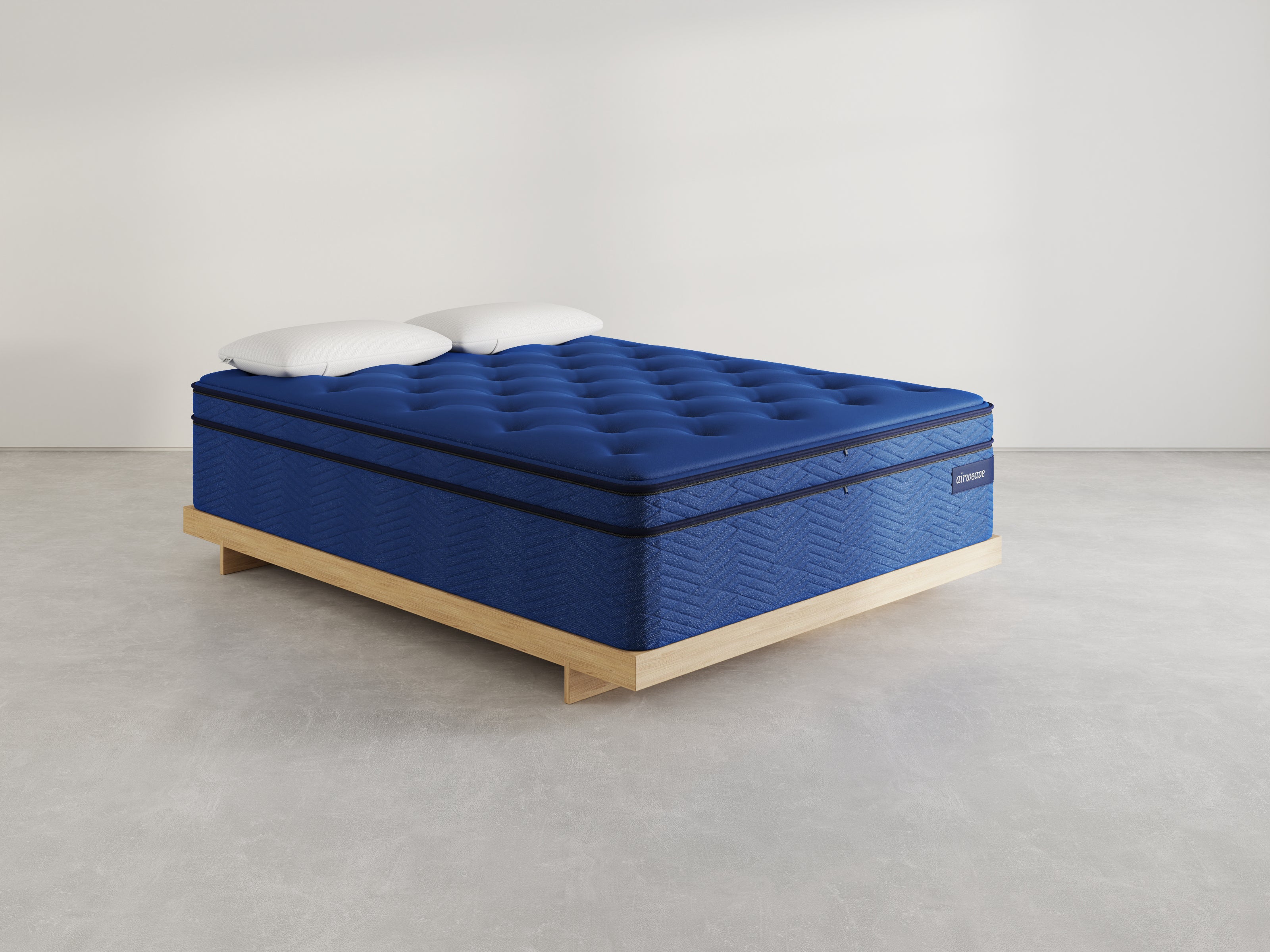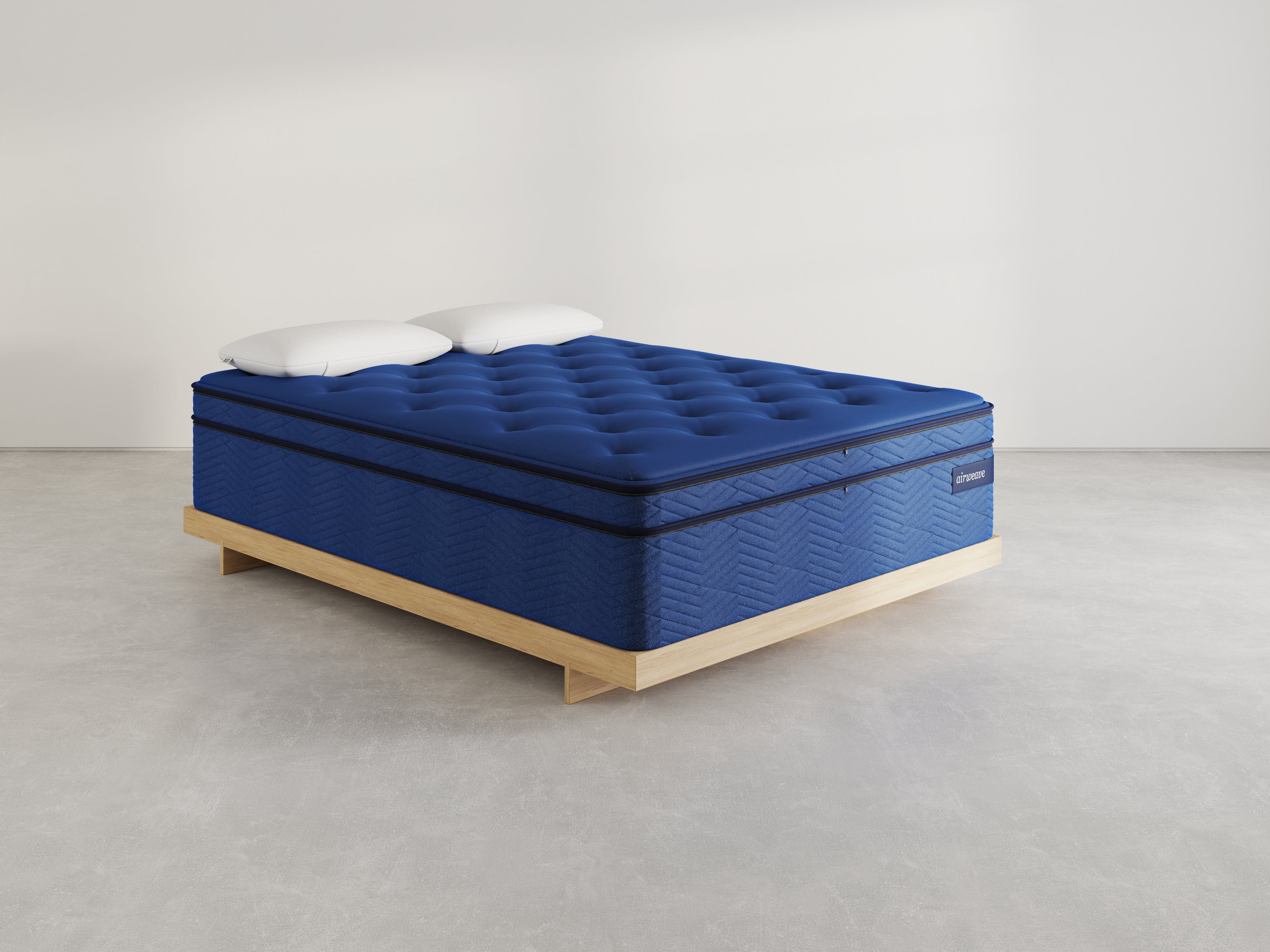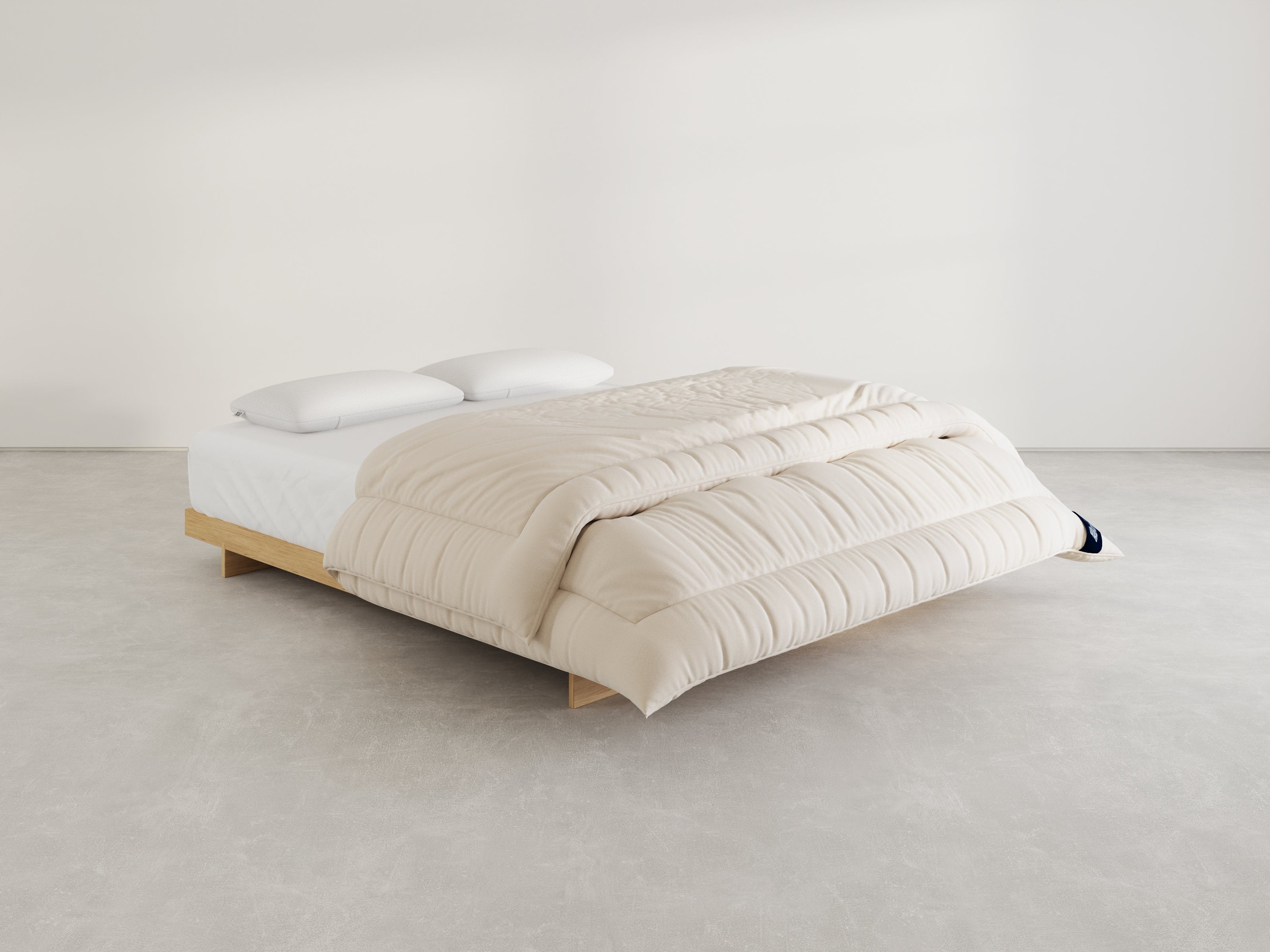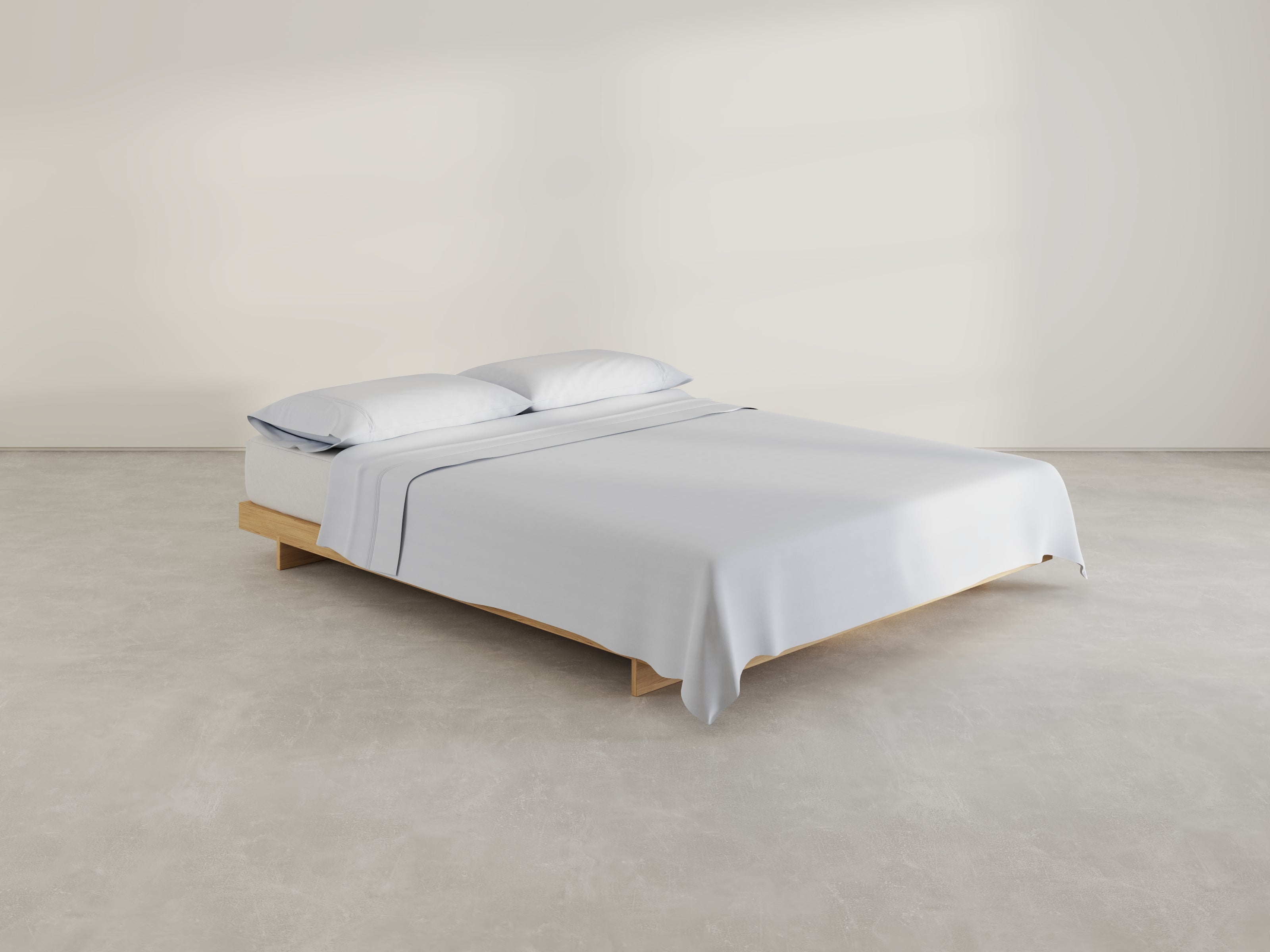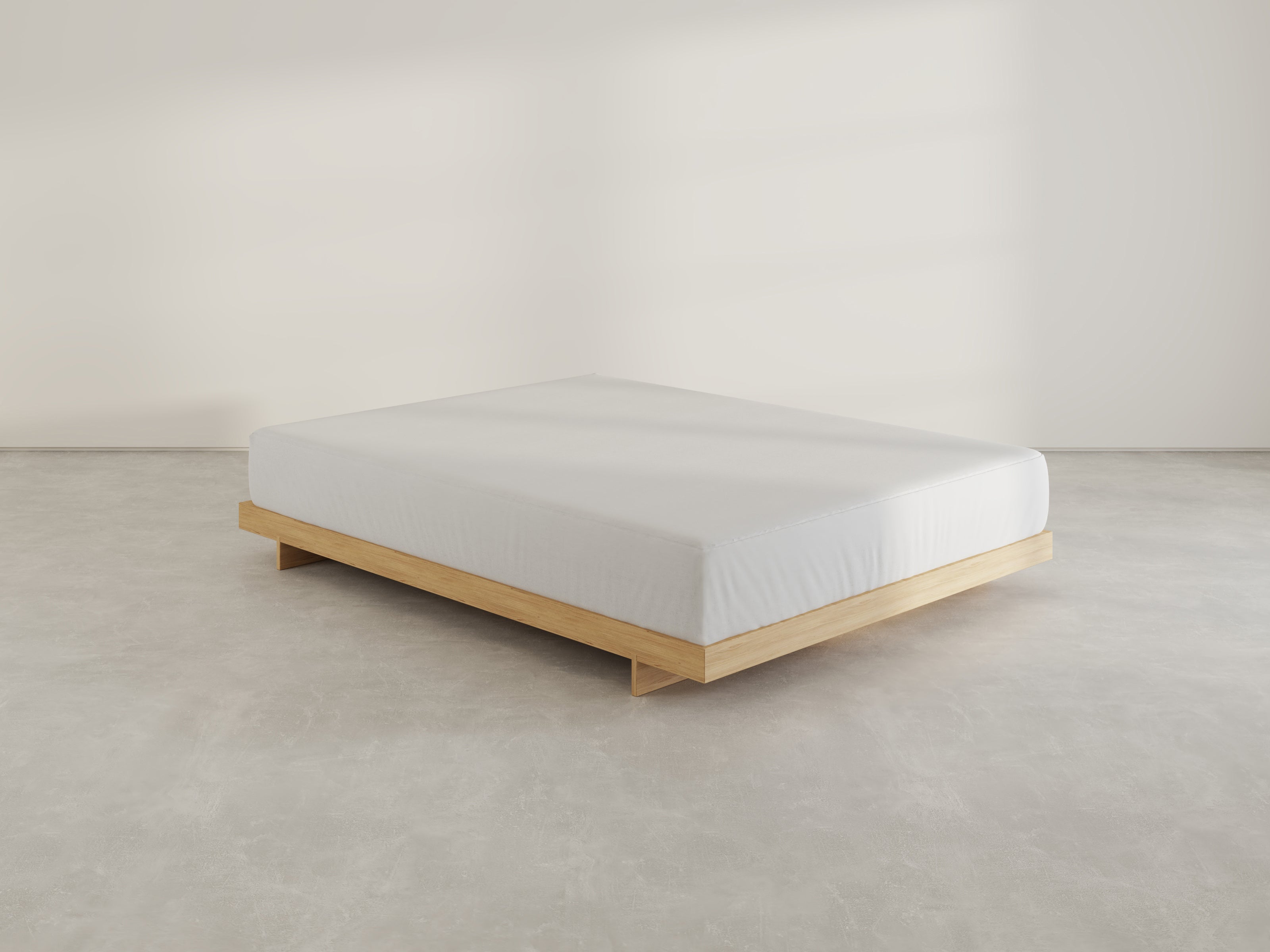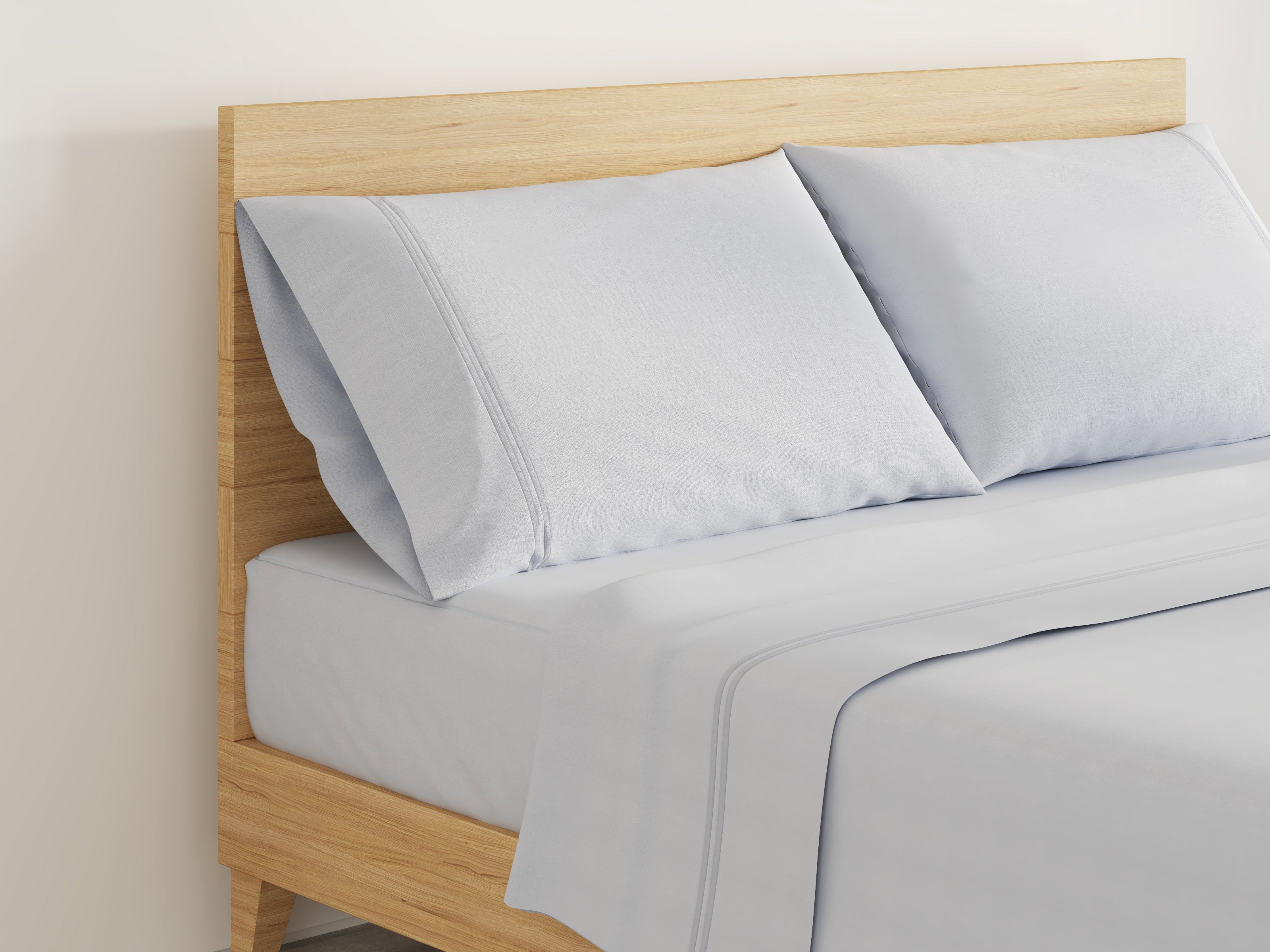The Best Room Temperature for Sleep with The Best Cooling Mattress
The full version of "What Is the Best Room Temperature for Sleep, and Why?" originally appeared on Hunker.com
We're happy to share our inclusion in Hunker's Sleep Week article on the science of sleep and temperature. Read to learn why!
When it comes to getting better sleep, it's natural to analyze your everyday habits. For example, maybe you tend to drink caffeine in the afternoon or take daytime naps. Or perhaps you have a hard time relaxing at night due to stress and anxiety. (It happens to us, too!) All of this is important to consider, of course — but it's also worth thinking about your actual bedroom environment.
After all, your surroundings play a huge role in the quality of your sleep. This includes the ambient temperature, or air temperature, of your bedroom. In fact, according to a scientific article in the journal Frontiers in Neuroscience, the temperature of your room directly influences your ability to fall (and stay) asleep.
But what is the ideal room temperature to sleep in, anyway? To learn more, we turned to the experts, below.
Why room temperature matters:
The importance of room temperature goes beyond physical comfort. Air temperature affects your body's core temperature, which is linked to your circadian rhythm. This is basically your brain's sleep-wake cycle, according to the Centers for Disease Control and Prevention (CDC). You can think of it as your internal body clock.
Your circadian rhythm begins reducing your core temperature about two hours before bedtime, according to the journal Current Opinion in Physiology. This drop in temperature decreases your heart rate and level of alertness, which tells your body it's time to rest. What's more, a cooler core temperature allows certain genes to perform "housekeeping" in the body, ultimately contributing to the restorative nature of sleep. Pretty cool, right?
Ideal temperature for sleeping:
In general, "the best room temperature for sleeping is between 60 and 67 degrees [Fahrenheit]," according to Catherine Darley, N.D., naturopathic sleep specialist and founder of the Institute of Naturopathic Sleep Medicine. This ambient temperature range supports the circadian-driven drop in body temperature mentioned above.
It's essential to avoid making the room too cold, though. Otherwise, you "may find it difficult to fall asleep or have disrupted sleep through the night," Darley tells Hunker. Likewise, "if the room temperature is too hot, your core body temperature [will rise], leading to discomfort and restlessness," says Dr. Funke Afolabi-Brown, M.D., sleep medicine physician and founder of Restful Sleep M.D.
How to achieve the right sleep temperature:
Naturally, one of the easiest ways to achieve the ideal room temperature for sleep is to adjust the thermostat. But what if you're unable to control the temperature of your space? This might be the case if you live in an apartment building or complex with temperature controls that are only accessible to the landlord or maintenance staff.
In this scenario, there are some things you can do to adjust the ambient temperature of your bedroom. Consider using an air conditioner or space heater, depending on the season. Darley also suggests using "several thinner blankets, rather than one thick duvet." This will make it easy to fine-tune the temperature of your sleep environment every night (or at different times of the night), she says.
During the summer, consider using sleepwear or sheets made with special heat-wicking fabrics, suggests Darley. Brown also recommends taking a warm bath before hitting the hay, which will help decrease your core body temperature. According to Frontiers in Neuroscience, exposure to hot water before bed reduces sleep latency (i.e., how long it takes to fall asleep) and promotes deeper sleep.
If you're still having sleep issues after adjusting your room temp, Darley suggests doing a full bedroom review. This includes cleaning the bedroom regularly to reduce dust and making the room as quiet as possible. You might need a white noise machine or fan to make this happen, depending on the noise pollution in your neighborhood. While you're at it, make sure the bedroom is dark by turning off (or removing) electronic devices. "It should be so dark [that] you can't see your fingers when stretched to arm's length," Darley tells Hunker.
Hopefully, with these tips in mind, you'll be well on your way to a good night's rest — but in case you want to take it a step further, here are our top picks for the best temperature regulating mattresses.
The Best Temperature-Regulating Mattresses
airweave Mattress
Sometimes, products come out that make us feel like we're living in the year 3000 — and this mattress is definitely on that list. The bed is equipped with the brand's softest airfiber® core that makes up the center of the mattress and comes with an optional pillow top layer that adds plushness.

The proprietary airfiber® technology uses a unique interwoven design that lowers core body temperature faster, so you fall into a deeper sleep faster. In fact, the brand's sleep research comparing airfiber® to memory foam — which has been accepted into the major medical journal PLOS One — revealed airfiber caused subjects to have a faster drop in core body temperature and provided 12.1 minutes more in a deep sleep state compared to subjects who slept on memory foam.


